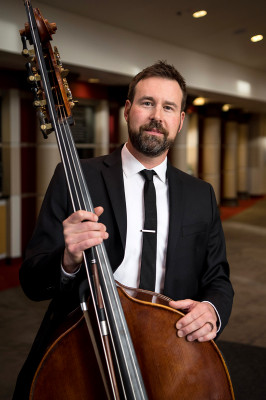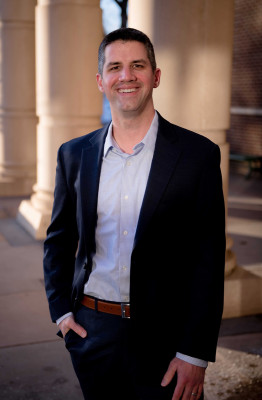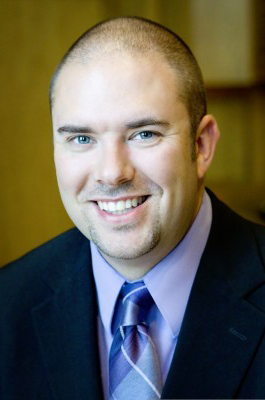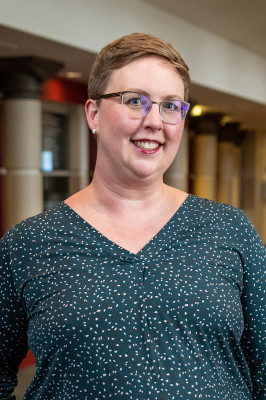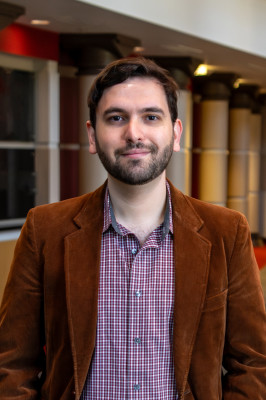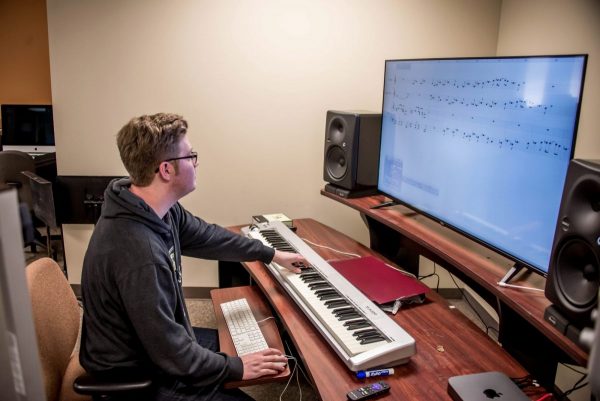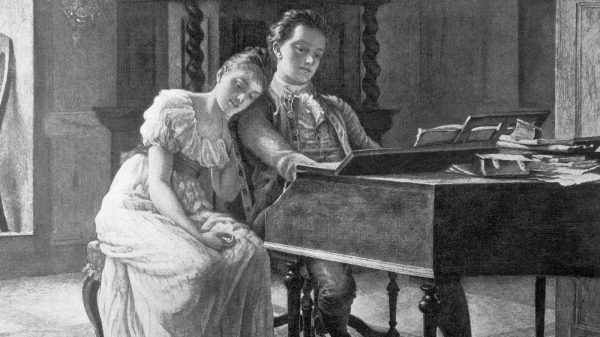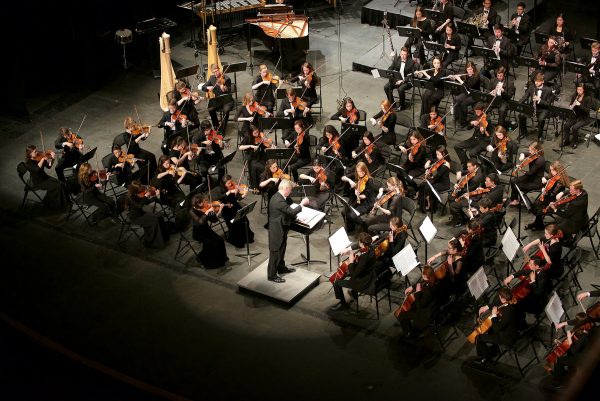Musicology and Music Theory
Overview
Although not a degree area at CSU, Music History and Music Theory are an integral component of every music student's program of study. The School of Music Theatre and Dance offers intense training in specialized music disciplines, combined with a balance of core music courses in music history and theory.
Study With
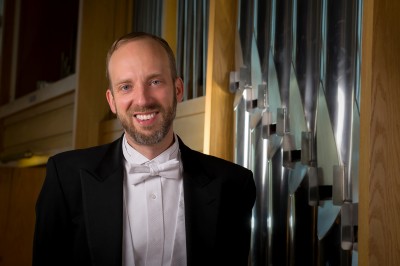
Joel Bacon
- Professor of Music
- Stewart and Sheron Golden Chair in Organ and Liturgical Studies
- Fr. Don Willette Chair of Catholic Studies
Musicology and Music Theory News
The Sound of Technology
The University Center for the Arts is alive with the sound of music, most of which was created with technology. From music and technology courses to music composition degrees to significant hardware and software technological upgrades, CSU students and UCA patrons are benefitting from the continued investment in music technology by the School of Music, […]
Famous Composer’s Sister Recognized, 188 Years Later
For CSU Musicology Professor Dr. Angela Christian, years of study and passion have come to fruition as an over century-and-a-half old art thriller has been solved. This week, her research culminates in London as Fanny Hensel, sister of Felix Mendelssohn, is publicly credited during International Women’s Day for composing the Easter Sonata.
March 2017 Faculty Notes
Wes Kenney, director of orchestras at CSU, had a rewarding start to 2017! It was announced by the Fort Collins Symphony Association’s board president Rhett B. Strom that Maestro Kenney signed a five-year contract extension as music director of the 67-year-old organization. Now in his fourteenth year with the symphony, the award-winning conductor will continue […]
Musicology
Musicology at Colorado State University encompasses scholarly study within the discipline of music. Foundational areas include historical inquiry, research, ethnomusicological fieldwork, music theory, and performance practice. All musicians use musicology in their pursuits, regardless of whether their specialty is performance, education, therapy, or another academic area.
CSU offers courses in musicology to both music majors and non-majors. Classes cover topics such as the history of Western art music, the history of jazz, rock and roll, American music, and music in non-western cultures. Emphasis is placed on the exploration of ways that music reflects cultural and societal norms in the time and location in which it was produced. All undergraduate and graduate music majors are required to take music history and research courses.
Undergraduate Musicology Courses
A broad selection of topics satisfies music history requirements for music majors, with many courses available as electives to non-music majors. 500 level courses are open to qualified undergraduates.
Contact
Honors Options
MU334, MU335, MU430, and MU431 have an honors option for students enrolled in the honors college. The student conducts a flexible independent research project under the guidance of the professor and then presents it to his or her peers at the end of the semester.
Graduate Courses
Graduate music history courses focus on periods of Western music from the Middle Ages through contemporary music. 400 level courses may count as graduate electives.
Music Theory
At CSU, music theory focuses on creating musical literacy at a high level. Students learn to analyze, sight-sing, and dictate music from a wide variety of eras, while historically situating music theory as a cultural practice.
CSU offers a traditional music theory sequence of tonal and post-tonal harmony for music majors and minors. Graduate students also complete courses in tonal and post-tonal analysis, and advanced undergraduates may take these courses with permission.
Requirements for music theory courses vary based on degree programs. B.A. students may focus on music theory for their capstone project.
Music Theory Courses
- MU 111 Music Fundamentals
- MU 117 Theory I
- MU 127 Aural Skills I
- MU 118 Theory II
- MU 128 Aural Skills II
- MU 217 Theory III
- MU 227 Aural Skills III
- MU 218 Theory IV
- MU 228 Aural Skills IV
- MU 318 Orchestration and Arranging
- MU 417 Counterpoint
- MU 418 Advanced Orchestration
- MU 517 Tonal Analytic Techniques for Graduate Students
- MU 518 Post-Tonal Analytic Techniques for Graduate Students
- MU 581A2 Multimodal Analysis for Ensemble Repertoire




